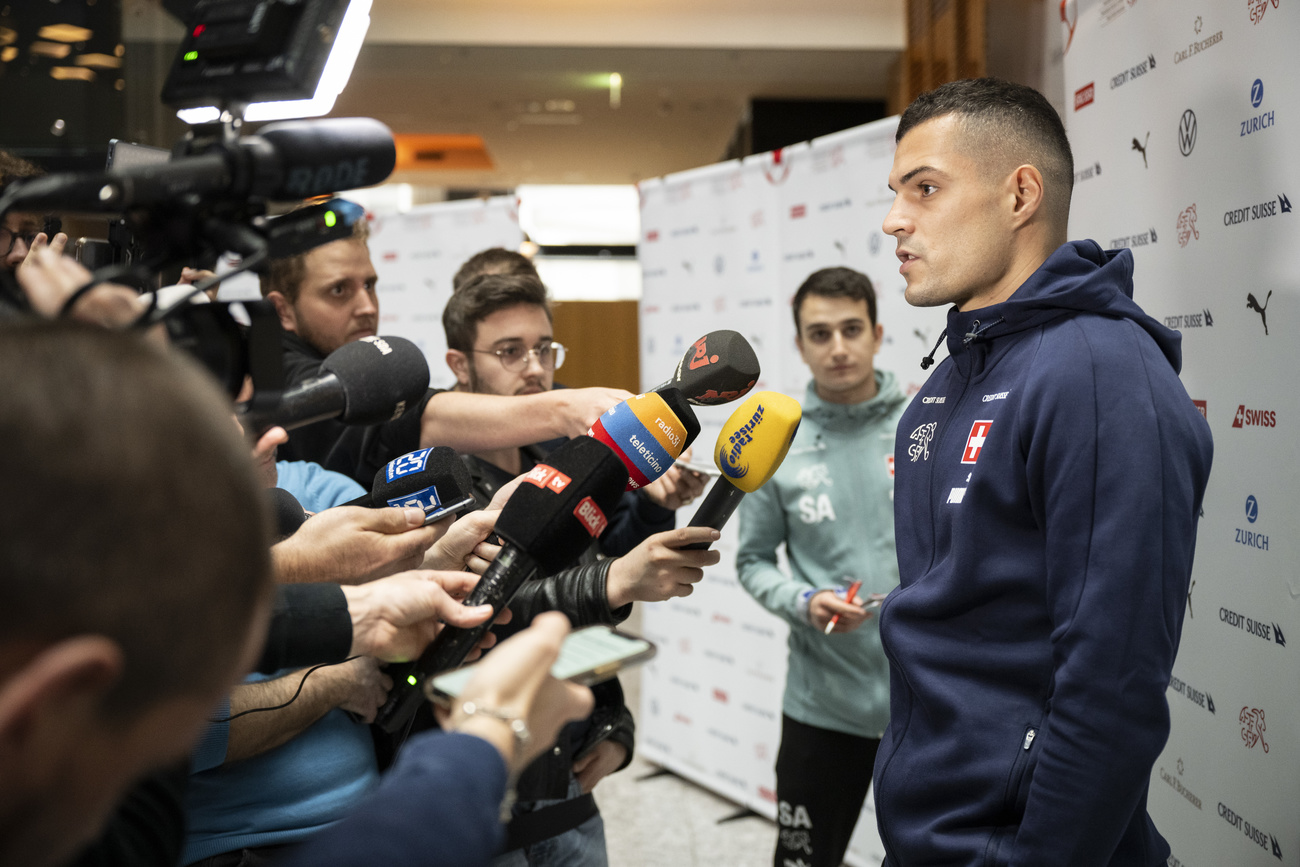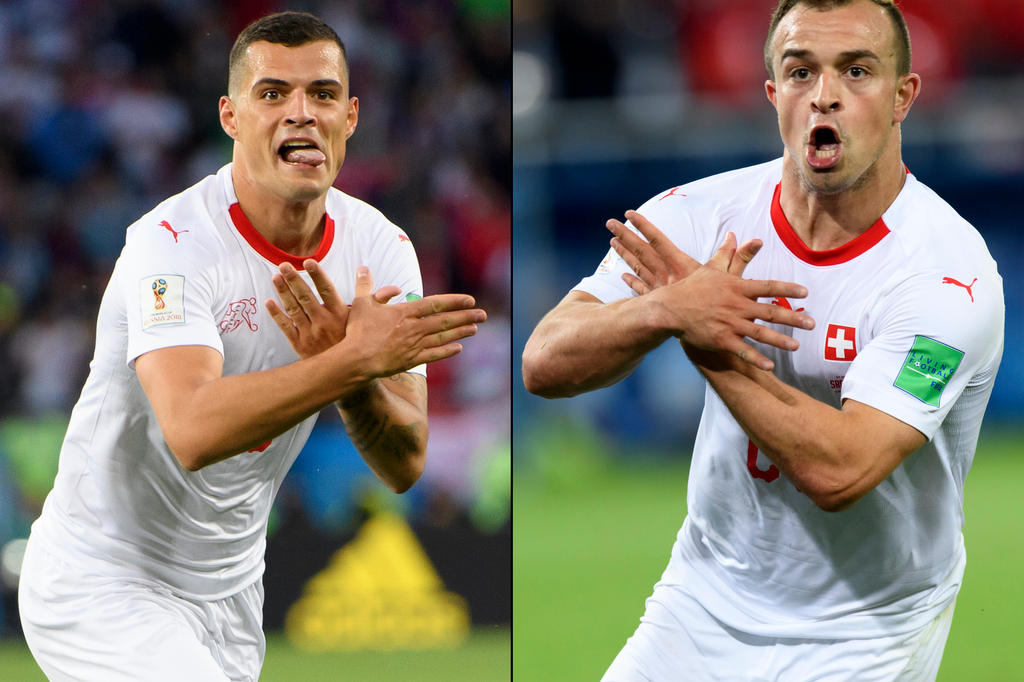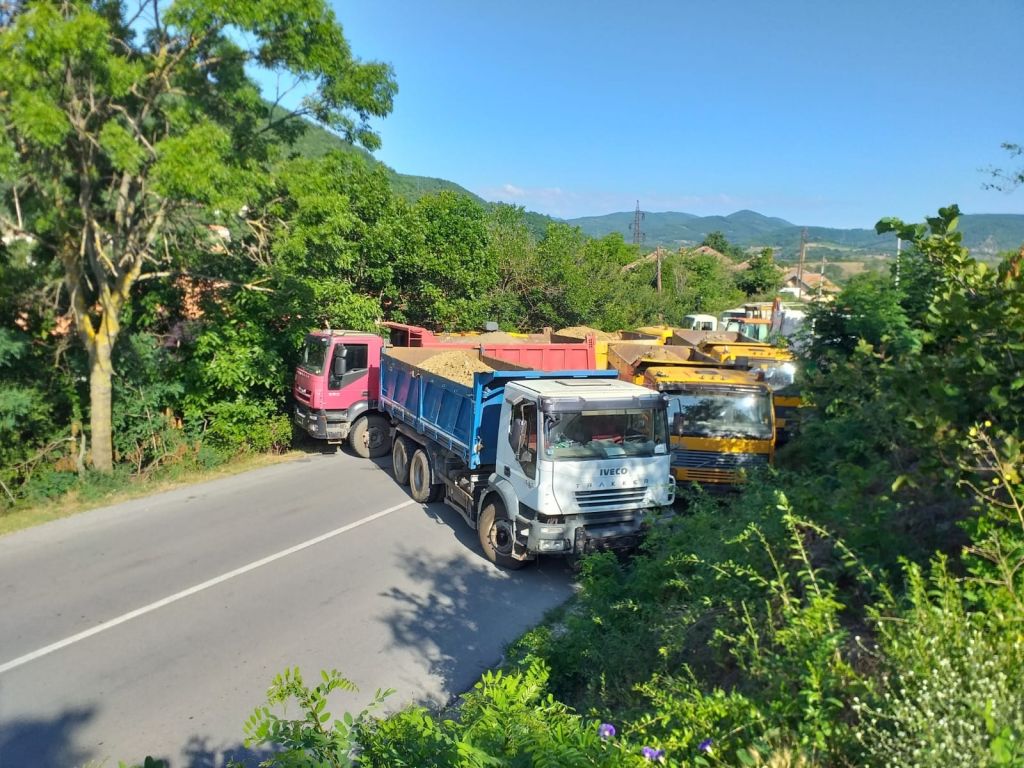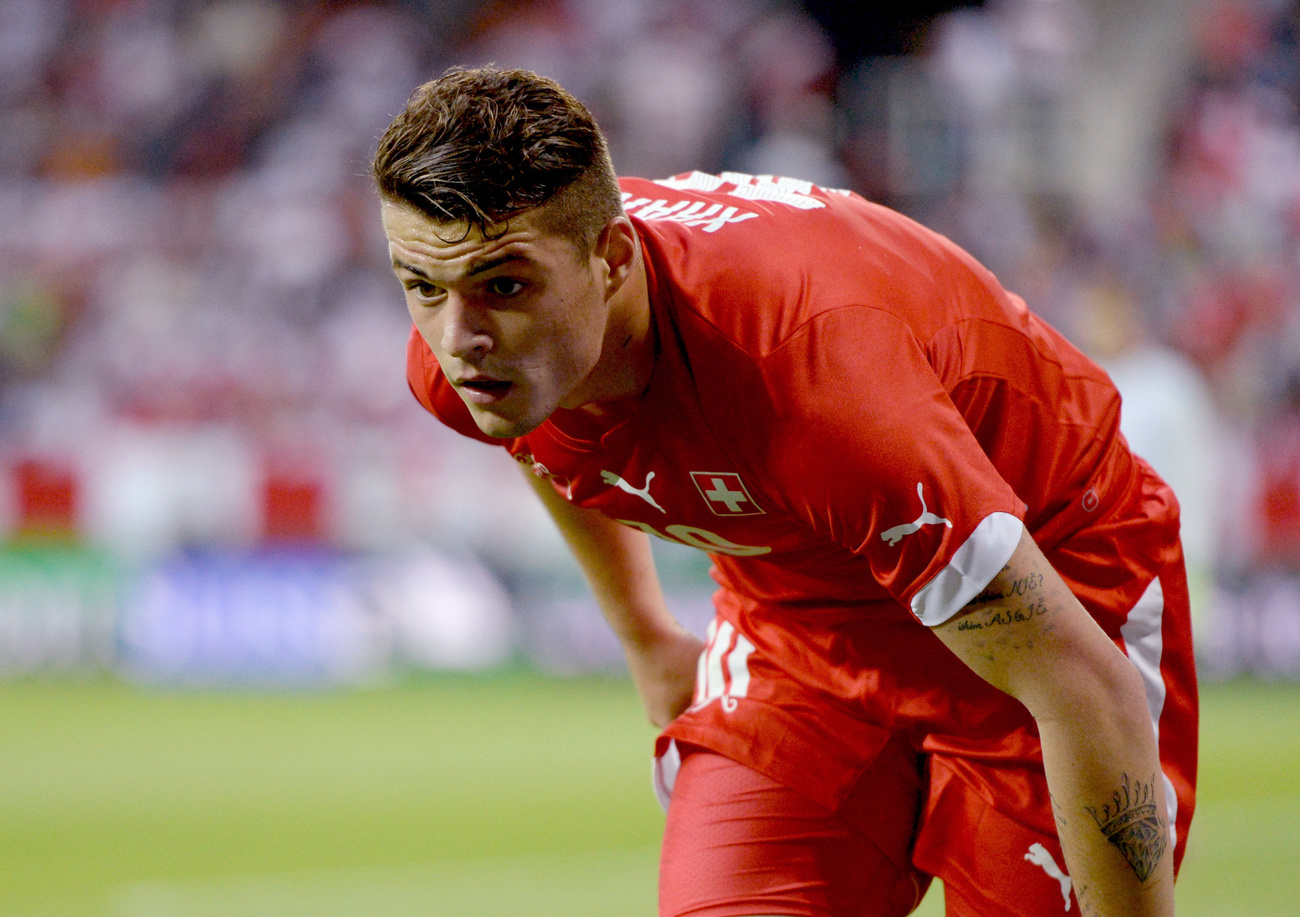
Swiss prepare for history-laden clash with Serbia at World Cup

Ahead of Friday’s mustn’t-lose match against Serbia at the World Cup in Qatar, Swiss footballers are playing down political tensions from the two sides’ previous encounter.
Four years ago at the World Cup in Russia, Switzerland captain Granit Xhaka celebrated his goal against Serbia by making a double-headed eagle with his hands, considered to be an Albanian nationalist symbol.
Xherdan Shaqiri added another goal in the final minute of the game, and did the same thing with his hands as the Swiss won 2-1.
Xhaka and Shaqiri both have ethnic Albanian heritage and family ties to Kosovo. They were teenagers growing up in Switzerland when Kosovo declared independence from Serbia, something the Serbs still don’t recognise 14 years later.
Both players were fined by FIFA, world football’s Zurich-based governing body, during the tournament, and the government of Albania opened a bank account for people to contribute toward paying the CHF10,000 ($10,500) fines.

More
Swiss footballers fined by FIFA for Albanian double-eagle gesture
On Friday, only one of the two teams will be able to advance to the next round – the last 16 – in Qatar. A draw should be enough for Switzerland, and Shaqiri should be available to play after sitting out the match against Brazil with a muscle injury.
Xhaka, now 30 and a mature leader for his country, brushed aside the controversial match from four years ago.
“[There’s] nothing in the history behind these two games,” said the midfielder for London side Arsenal. “We are Switzerland, they are Serbia, that’s it. We’re here to play football – as are they.”
Disciplinary case
Still, the Serbian delegation at this year’s World Cup has already made the politics of Kosovo an issue.
Serbia’s locker room ahead of its opening game against Brazil displayed a national flag with territory that included Kosovo and the slogan “No Surrender.” FIFA opened a disciplinary case against the Serbian football federation on Saturday.
The Kosovo football federation formally complained to FIFA after a photograph circulated and the country’s sports minister, Hajrulla Ceku, described the image as using the World Cup to promote “hateful, xenophobic and genocidal messages”.

More
Swiss keep an eye on tensions in Kosovo
The Swiss advanced to last 16 in 2018 after a draw with Costa Rica in their final group match, while the Serbs were eliminated after losing to Brazil. This time, the teams go head-to-head in their final group game.
“Of course, the history is the history,” said Switzerland goalkeeper Yann Sommer, who also played against Serbia four years ago in Kaliningrad. “But in this moment it will be the game that is important. We know this game already. We had it in Russia.”

More
Switzerland disappointed at ‘OneLove’ World Cup armband ban

In compliance with the JTI standards
More: SWI swissinfo.ch certified by the Journalism Trust Initiative






























You can find an overview of ongoing debates with our journalists here . Please join us!
If you want to start a conversation about a topic raised in this article or want to report factual errors, email us at english@swissinfo.ch.